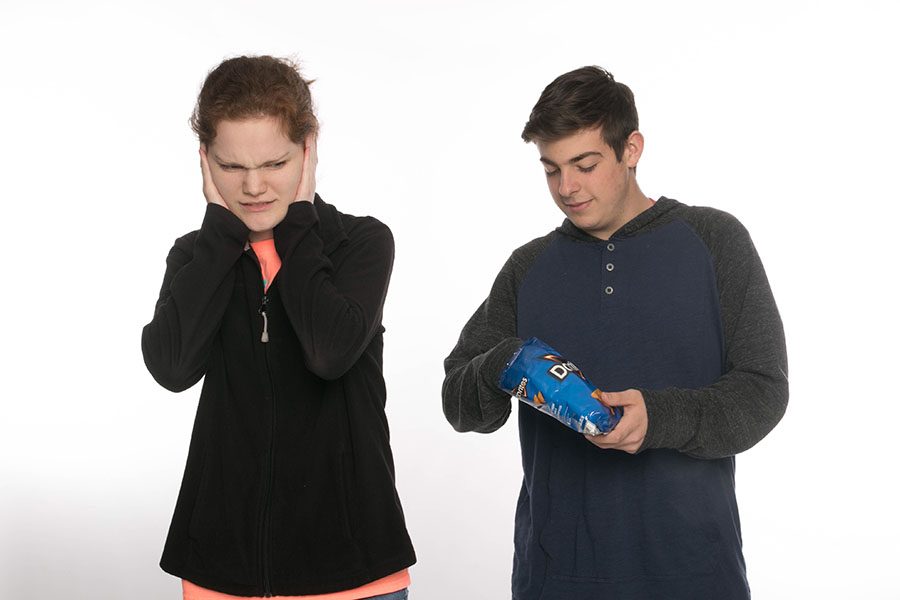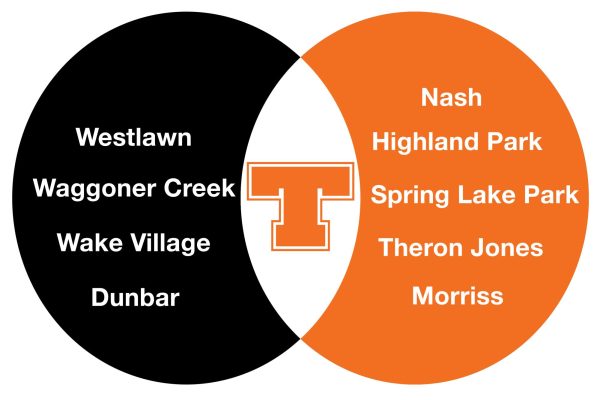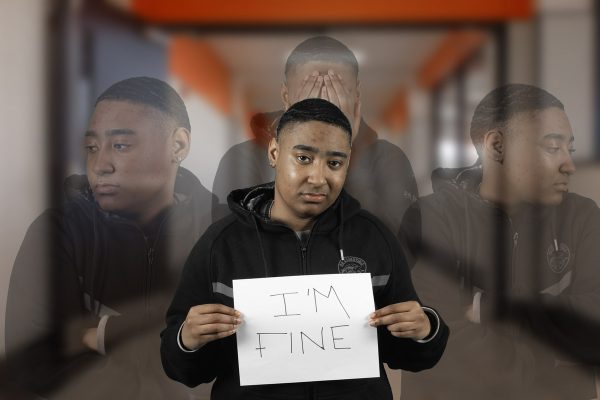There’s nothing worse
Junior struggles with misophonia
November 1, 2017
Most people simply cringe when they hear slightly unpleasant sounds. I, on the other hand, may get upset.
Misophonia, also known as select sound sensitivity syndrome, is the fear or hatred of certain noises and sounds. To me, there is nothing worse than someone’s loud crunches of ice, nauseating smacks of food, a twitchingly annoying sound of clipping fingernails or spontaneous sneezes and coughs that startle me and make me jump. They all trigger an anger or a panic.
Ultimately, repetitive sounds set me off. Clicking pens, tapping fingernails and popping fingers are prime examples.
Sometimes, I abruptly go off on whoever is making the noise out of accumulated anger. Obviously, it’s annoying for the people creating the noise to tolerate my aggressiveness. They respond back with a puzzled look on their face or a sigh.
Before I began researching misophonia, I had thought about why I react to these sounds like I do. I may not ever really know the precise reasonings, but I have speculations of what they could be.
I love the quiet. I have been accustomed to a quiet atmosphere since I was little; my family isn’t very loud– we’re soft-spoken. In fact, I’ve been told multiple times that I am known for my quiet nature. It’s not that I don’t want to talk, it’s that I like to listen and observe. The problem with listening and observing is that I get irritated when some odd noise interrupts my thoughts and the focus that I already had. It sounds ridiculous, but I have accepted that it’s part of who I am.
Misophonia, also known as select sound sensitivity syndrome, is the fear or hatred of certain noises and sounds.
— Garmon
I remained unbothered by these particular sounds until I was about 15, and it seems like it started happening out of the blue. As I researched misophonia, I learned that, according to WebMD.com, the condition is lifelong. It also comes on quickly and it usually occurs in females between the ages of 9 and 13—which is relatively near the age of 15. Additionally, I read that doctors think the condition is “part mental and physical,” meaning that it could be related to how sounds affect the brain and that it could even be “classified as a new mental disorder” since it is often mistaken as anxiety or OCD.
When I continued to read through the WebMD article, the section of “treatments” appeared, which offered suggestions of different ways to cope. Some, such as a unique hearing aid or antidepressants sounded extreme to me, especially since misophonia is oftentimes looked at as a really minor problem. However, the article covered less extreme strategies as well. For example, talk therapy, another form of treatment that the article covered, seemed like it may be effective and the right amount of extreme for me. Exercise, stress management, and a good amount of sleep may help, too.
I have seen so many articles online regarding misophonia that I know for certain that I am not the only one in the world that struggles with it. According to the WebMD article, there are even support groups such as the Misophonia Association and support groups online where people can share how they personally deal with their condition.





















